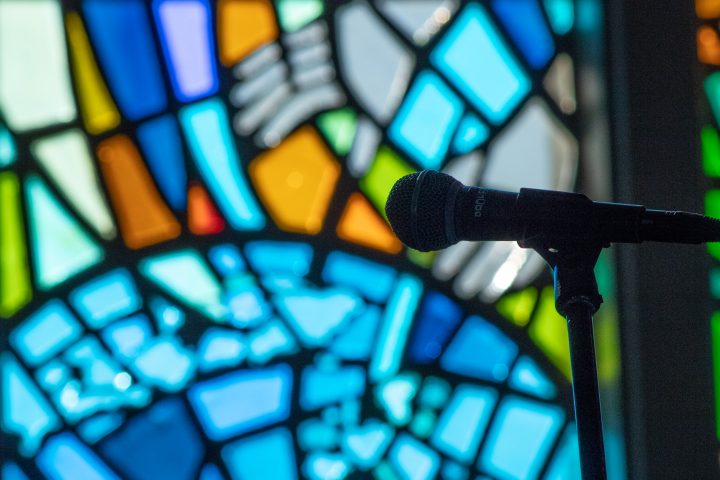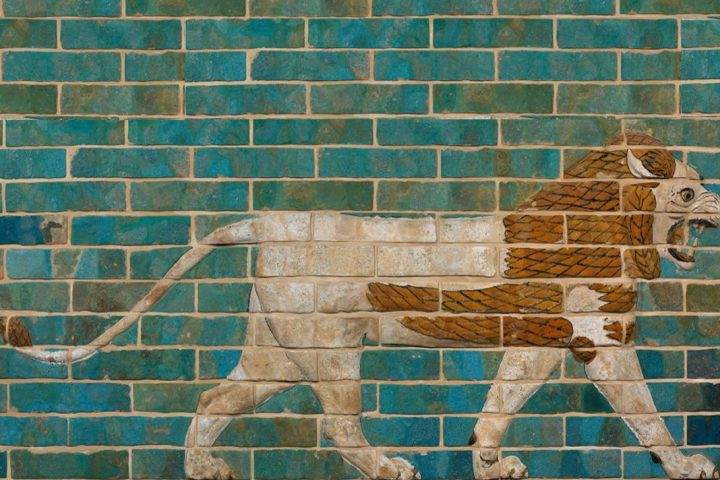Subscribe with iTunes, Google Podcasts Or, paste the feed URL into your favorite podcast reader (https://pbcc.org/feed/sermon-podcast/).
Love Just as I Love
John 13:21-38
As we enter back into John 13 this week, we join the disciples in an upper room in downtown Jerusalem on the night before Jesus goes to the cross. Jesus astonishingly begins this final teaching by serving his disciples in the act of washing their feet. Next, Jesus will explain this act even more, but framed in the language of love, and not just any kind of love, a “just as” kind of love. What is even more astonishing is that this teaching happens in the context of heart-wrenching rejection. Join us this Sunday as we explore this “just as” kind of love.
All The Way To The End
On Sunday we welcome a guest preacher, Iain Provan, Old Testament Professor at Regent College Vancouver, who will meet next week with our pastors for their annual retreat.
David began the beloved Twenty-third Psalm, “The Lord is my shepherd.” A thousand years later Jesus said, “I am the good shepherd. Psalm 23 and John 10:7-15
The good shepherd lays down his life for the sheep” (John 10:11). The earliest Christian art depicted Jesus as the Good Shepherd caring for his sheep.
People of the Towel
John 13:1-20
We return to our studies in the Gospel of John this Sunday, a Gospel that invites us to Come and See who Jesus really is. Our text this week is the well-known text of Jesus washing the feet of his disciples. Would it be even more well-known, because it is in this scene where Jesus turns everything upside-down. He defines Lordship (even deity!) in terms of a towel, then defines what it means to be people of the towel. Join us this Sunday as we explore the foot-washing event by the foot-washing Lord.
When Sunday Feels Like Saturday
Mark 16:1-8
As the saying goes, “It’s always darkest before dawn” — this was no less true that first Easter Sunday when Jesus’ followers woke up thinking He was still buried in the tomb. But as the Gospel of Mark reminds us, sometimes it’s pretty dark even after the sun has risen! This Easter coincides with a return to post-pandemic normalcy, but perhaps life still feels dark despite the sun. Come join us as we prepare to emerge together into the Resurrection life of Christ.
The Cost and Crowning Joy of Redemption
Ruth 4
In the final chapter we witness how Ruth’s courageous acts of hesed love propel Boaz to new levels of incalculable risk and joy of covenanted relationship that culminates in a “redemption” that outlasts history!
Who Are You My Daughter?
Ruth 3
As we enter the third chapter of Ruth, we encounter more bold and daring examples of hesed (“unfailing love to the helpless”) that, at first glance, appear dangerous and deceptive—a midnight encounter on the threshing floor that is loaded with sexual overtones and double meanings. Warning bells go off—“Parents Be Warned: Mature Subject Matter.” True, the scene is riddled with sexual tension, but I believe we need to teach our children how God’s people are perpetually confronted with difficult situations and hard choices and how they must decide whether they will be guided by self-interest or hesed. The choices made by Naomi, Ruth and Boaz are exemplary and compel us to constantly re-negotiate the complexities of moral decision making in a world where everyone is in some way threatened or compromised. Carolyn Custis James suggests that this is “one of the most powerful gospel encounters between two people in all of Scripture.” I believe it also gives a radical understanding to what it means “submit to one another out of reverence for Christ” (Eph 5:21).
Finding Favor in His Sight
Ruth 2
We are continuing our studies in the book of Ruth, where will discover new dimensions of hesed (“unfailing love for the helpless”). Even though Ruth is a barren widow, poor and an immigrant living in a foreign land, she takes bold and daring initiatives to provide food for her mother-in-law. Her boldness and industry do not go unnoticed by Boaz, who reciprocates her hesed in ways Ruth or Naomi could have never imagined. The text has much to say about the dynamic of God’s grace and human initiative and the importance of crossing social barriers and breaking societal rules to raise the dignity of the marginalized.
Will You Go Where I Go?
Ruth 1
For the last several weeks Bernard Bell has given us the broad sweep of the kingdom of God in heaven through the Daniel’s apocalyptic visions of ravenous wild beasts and destructive empires that rise and fall under God’s sovereign hand. For the next four weeks we will turn our attention to the book of Ruth, examining how God’s kingdom comes to earth in an age of moral deterioration, political disaster and civil war. Ellen Davis observes, “Like the Israelites in the time of the Judges, we are worn down and worn out by ‘great events’ on a national and international scale… and so, perhaps the teaching of this book of Ruth is especially apt now in a time of widespread disorder and personal loss, simple acts of mutual regard—the Hebrew word for that is hesed, the discipline of generosity that binds Israelites to one another and to God—acts of hesed can open up the future God intends.”
Light at the End of the Tunnel
Dan 12
As we emerge from the Omicron wave of Covid and mark two years since PBCC closed its campus at the beginning of the pandemic, the light at the end of the tunnel looms large. But for Russia’s war in Ukraine there is as yet no light at the end of the tunnel; the train is still heading further into the darkness. Daniel asked how long it would be till the end of the time of distress. He is given different answers: a time, times and half a time; 1290 days; and 1335 days. How far away is the light and what does the light bring?
Faithful Resistance
Dan 11
The world admires the courageous resistance of the Ukrainian people and President Zelensky in the face of the brutal Russian invasion. Is it possible to mount an effective resistance without sinking to the same brutality as the invader? Both Daniel and Revelation are resistance literature, written to encourage God’s people to resist evil while remaining faithful to him. Daniel 11 portrays human empire sweeping over God’s faithful people. How do they resist?
Behind the Scenes
Dan 10
Russia has made a move on Ukraine. In Daniel’s day it was the Persian Empire that was expanding its territory, only to later be overrun by the Greek empire of Alexander the Great. There was more going on than a sequence of empires. Daniel is told that world events of his day reflected a cosmic conflict behind the scenes. We go behind the curtain to consider these extraterrestrial realities.
How Long?
Dan 9
“How long, Lord?” asked the Psalmist. “How long?” we ask also. How much longer will the pandemic continue? Is the end really in sight this time? When Babylon fell to the Persians, Daniel sensed that the end of Jerusalem’s desolation was nigh. He read in Jeremiah that it would last 70 years, and he had already been in Babylon for 66 years. The time was nearly up. So, in one of the great prayers of the Old Testament, Daniel prayed for God’s mercy. But he was told that the problem was much worse than he thought. It would take seventy sevens—the (in)famous Seventy Weeks of Daniel 9.




